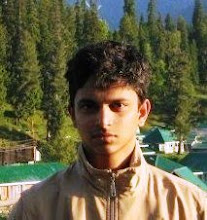Harry Potter, in my opinion, should be made compulsory reading in schools.
Nigel Britto
Fantasy isn't everyone's cup of tea. It was the last thing on my mind when J K Rowling released Harry Potter and the Sorcerer's Stone in 1998. I was three years late on the Potter bandwagon. When I first met Harry in 2001, he was 11 and I was 14. Back then, my lit diet consisted almost exclusively of Wodehouse, Dickens and Enid Blyton, all of whom I still adore. I loved Sorcerer's Stone and hoped that J K Rowling would manage to sustain the momentum of what I thought had the potential to be a brilliant series for a school library to stock.
Ten years, seven novels and eight movies later, Harry Potter doesn't quite seem the same. In circles a 24-year-old frequents, confessing to liking the tales of a boy wizard is akin to saying you suck your thumb at night. Way too many people, most of whom consider themselves above such 'childish' literature, fail to recognise the beauty of a series that made a generation tear away from television and video games and run to their libraries to appreciate the beauty of the written word.
Critics say the books are no Lord of the Rings and the movies not quite Narnia. There again, I doubt they were ever meant to be so. Harry Potter grew with me, as he did with a few million others. At first, we were greeted with easy reads that talk about a 11-year-old going to a magic school. Later, to keep up with the reader's growing maturity and depleting attention span, the books get progressively darker and more complex, dealing with a variety of subjects such as alchemy, love, philosophy, and splitting of souls. Today, at 24, I can see and appreciate that. The fun part? Almost certainly, Harry Potter inadvertently opens the gates to C S Lewis's allegoric worlds, to Tolkien's misty mountains, to Pratchett, Steinbeck and the massive world of fantasy fiction beyond Hogwarts.
There's something about Harry Potter that's genius. J K Rowling is not the best writer you would encounter, but her storytelling and creation of magical worlds is second to none (perhaps the literary version of George Lucas?). They're not literary masterpieces;in fact, some would argue that they're not literature at all. However, right from their inception, the books struck a chord with readers everywhere. The series' epic finale, Deathly Hallows, proved that Rowling lost none of her touch and it's no accident that the Harry Potter movies are the most successful in film history.
That success is perhaps due to the way they handled the constant danger that accompanies all book-based movies - the fear that they might fall short. The Potter movies resolved that problem by casting brilliant albeit rather unknown British actors rather than famous American ones. Alan Rickman as Prof Snape, Dame Maggie Smith as Prof McGonagall and Gary Oldman as Sirius Black ensured the books were brought to life as thoroughly as they could possibly be, effectively mentoring and complementing the young trio of Radcliffe, Watson and Grint.
Why, then, is it that I will remain a lifelong Harry Potter fan? To me, the most ingenious bit was the confluence of the wizarding and muggle worlds, and that magic had to be studied.
To me, Harry Potter is a hero of childhood dreams. An ordinary boy who has potential for greatness, and who through dedication and able guidance, thwarts all plans to stop him and eventually emerges victorious. The storyline is creative, the supporting characters are built up beautifully, there's a dash of subtle feminism throughout the series, and magic is described as a technology or talent rather than a sword. Rowling has created a 'book of virtues', a story that prizes loyalty unto death, sacrifice, compassion, courage and friendship. The message is timeless. And if I had ever to recommend one series of books as compulsory reading across schools, this would be it.
This article was first published in The Times of India's Crest edition on June 23, 2011.

